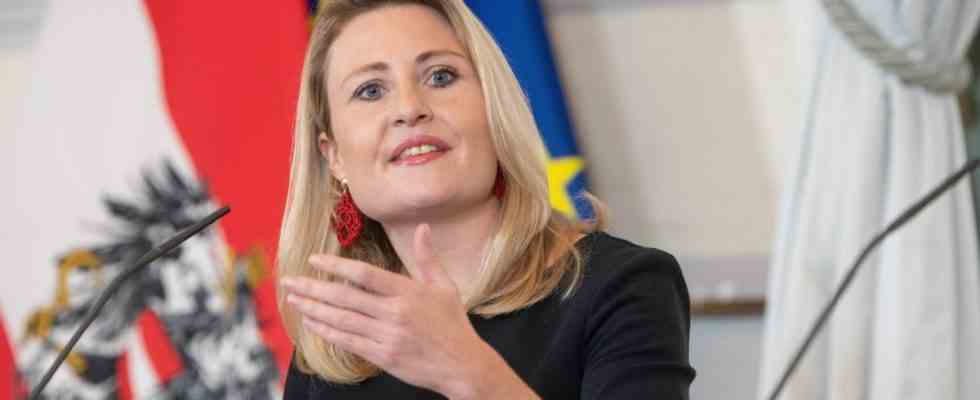Now, one might think, the ORF can turn to what its actual task is: to make a good program. Because the question of financing has been clarified since this week. A household fee is to replace the previous GIS model from 2024, making it cheaper for everyone. At least that’s what it promised like a mantra Media Minister Susanne Raab in the ZiB2 on Thursday eveningwhich told the ORF several times that the public broadcaster had to become “more efficient”.
Raab then got pretty tight-lipped on a topic that politics would have to start with: When asked about the repeatedly demanded depoliticization of the ORF committees – specifically the board of trustees – the ÖVP politician began to falter. “It’s not planned.” And if, as moderator Marie-Claire Zimmermann asked, the Constitutional Court, as in the case of financing, insists on a change after decisions in pending cases? “Supreme court findings must be implemented if that is the case. But nothing is planned.”
So, everything stays as it is: ORF is not only politicized, but party-politicized. Every change in the ORF is a political issue – this is especially true for management positions. Roland Weißmann was raised to the top of the ORF with the support of the ÖVP. One can assume that Weißmann knows how media politics works. So one could assume that he therefore reacted to the demand for savings at the ORF with the announcement that then one could no longer afford the radio symphony orchestra and the Sport Plus channel. After the foreseeable storm of indignation from cultural workers to sports associations, a solution is now to be found for both institutions, politicians assure us.
The ORF can now devote more attention to personnel issues
In any case, ORF can now turn its attention to internal restructuring. Two of the three editors-in-chief need to be filled: Matthias Schrom, who resigned because of chats with the then FPÖ boss Heinz-Christian Strache, will now lead the “Smart Producing” project. The previous radio editor-in-chief Hannes Aigelsreiter has been head of sports since the beginning of the month. However, the two online editors-in-chief Gerald Heidegger and Christian Staudinger should not assume the role of central editor-in-chief. But that’s what it boils down to, after all, the newsrooms work in a shared newsroom. Because a woman as editor-in-chief might also be good for the ORF, names like that of report-Moderator Susanne Schnabl acted. In order to allay the fear of the parties exerting central influence via a central editor-in-chief, as Werner Mück was, discussions are being held on the Küniglberg about reintroducing an information director – candidate for this: Ingrid Thurnher, a full professional journalist and currently radio director.
And as far as the influence of party politics on the ORF is concerned, as with the question of fees, you have to rely on the Constitutional Court. Politicians will not loosen the stranglehold on their own.
This column also appears in the Österreich-Newsletter, which bundles the reporting on Austria in the SZ. Register now for free.

